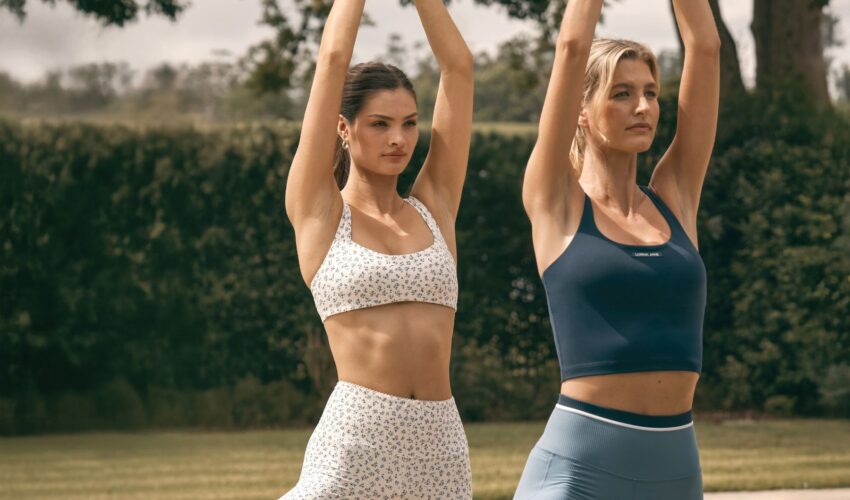Style

22 Sustainable Fashion Brands To Shop Now
A sustainability revolution
The term sustainability is inherently at odds with the traditional meaning behind the world of fashion. An industry that earns a living providing fashionista’s with the very latest trends that they haven’t seen or worn before is exactly what unsustainable means.
Nevertheless, we believe a sustainability revolution is amongst us leading the charge on what the clothing industry should be. Gone are the days that conscious fashion meant one rail of shapeless hessian sacks shoved into the back room of any retail front. Here you’ll find our top sustainable brands to shop without ever having to forgo style again.
Re/Done
Upcycling iconic vintage denim is at the helm of RE/DONE’s ethos, transforming heritage Levi’s denim into modern fits to creating brand new styles from stagnant stock that would have found their way into landfills. RE/DONE has diverted over 145,000 garments destined for landfills into luxury collectables much loved by celebrities.
Today RE/DONE has expanded its collection to offer reduced-water denim, upcycled ready-to-wear pieces, and sneakers handmade in Italy by expert artisans.
Shop RE/DONE at The Iconic
NOBODY DENIM
Nobody Denim is Ethical Clothing Australia Accredited, meaning they ensure ethical standards of practice by maintaining a fair and safe workplace. The majority of their denim is manufactured in Melbourne allowing them to guarantee they continue this practice.
Nobody Denim has been working closely with Sustainability Victoria to become energy efficient while reducing water use. Since 2017, Nobody Denim has reduced 50% in their stone washing and bleaching processes.
Shop Nobody Denim
S/W/F Boutique
S/W/F Boutiques made to order model ensures minimal waste while the brand consciously strives to repurpose all offcuts into versatile pieces. Using natural fibres that are hand-dyed ensures non-toxic chemicals for minimal environmental impact.
Shop S/W/F Boutique
Ganni
Continuously improving on their responsibility, being totally transparent and honest about their progress is at the heart of Ganni’s ethos. Being the first to admit their not perfect, Ganni has introduced more responsible materials into their designs from certified to innovative fabrics.
Occupying numerous sustainable fronts, Ganni uses organic materials for their Responsibility collection that’s proven to lower environmental impact. The brand has also launched rental platforms extending the life of their clothes and has introduced a “take back” scheme collecting clothing and textile waste to be recycled and upcycled.
Shop GANNI
Gucci
It may come as a surprise that such a large fashion house like Gucci are at the helm of sustainable practices, but since the appointment of Marco Bizzarri over seven years ago, the Gucci President and CEO recently revealed the fashion house is now carbon-neutral.
Gucci’s the first luxury brand to use ECONYL®, regenerated nylon that is 100% obtained from pre and post-consumer waste, such as abandoned fishing nets and carpets. While their Scap-less initiative significantly reduces the amount of energy, chemicals and water to treat leather materials. More on Gucci’s practices here.
Shop Gucci
stella McCartney
Stella McCartney’s values were ingrained from birth, her mother and muse Linda was a photographer, vegetarian and animal rights activist whose values continue to inspire her to this day. Since Stella McCartney’s launch in 2001, she took a revolutionary stance and has never used animal products since and has continued to grow its sustainability leadership to this day.
Being a member of the Ethical Trading Initiative (ETI) means they promote respect for workers’ rights globally while using innovative materials, promoting restorative farming practices and designing products that are made to last.
Shop Stella McCartney
MULBERRY
For Mulberry’s 50th birthday this year, they launched the Made To Last initiative, an initiative to reduce the number of greenhouse gases and a reimagining of a circular design model across their leather supply chain.
Mulberry’s heritage Scotchgrain material is now sustainably crafted with innovative Bio-Synthetic materials. Through the use of ECONYL® and biodegradable eyewear, they are committed to achieving net zero Greenhouse Gas (GHG) emissions by 2035.
Shop Mulberry
St. Agni
Creators of quality timeless pieces, using fine sustainable fabrics such as TENCEL ™ Lyocell, St. Agni’s responsibility extends from materials to social giving being at the core of their approach to sustainability.
St. Agni has been at the forefront of sustainability since the brand’s emergence in 2014. Holding an Ethical Clothing Australia Accreditation, protecting the rights of Australian garment workers to the brand’s committed support to UN Women by donating 100% of profits on International Woman’s Day as well as manufacturing on a small scale to help reduce waste.
Shop St. Agni
Reformation
Reformation was one of the first major sustainable brands to hit the mainstream. From humble beginnings selling vintage clothing, they quickly expanded their brand dedicated to reducing waste, water and energy footprints, as well as making incredibly cute dresses that celebrate the femme figure.
Sustainability is at the core of everything Reformation does, being a 100% carbon neutral company, they’re committed to investing in solutions down to tracking each and every one of their garments environmental impact through Refscale.
Shop Reformation
Emma Mulholland on Holiday
From designing down to the manufacturing, Emma Mulholland on Holiday’s processes and resources have been carefully selected to ensure conscious practices from start to finish.
To ensure minimal waste and dead stock, garments are knitted and cut to size while offering their most popular styles on Pre-Order encouraging their customers to shop responsibly.
Bassike
Consciously made since the brand’s establishment, bassike was founded on considered designs, sustainable manufacturing and responsible business practices.
Manufactured from organic cotton materials and produced here in Australia, bassike’s core is grounded in the responsible use of fabrics from cotton to jersey and denim achieving zero waste on their jersey garments.
Shop Bassike
GARY BIGENI
By only accepting pre-orders, Gary Bigeni is able to eliminate waste, ensuring he is using only what is needed. The upside? A truly unique piece of garment for each and every order.
Considered practices don’t stop there, Gary Bigeni uses eco-certified Cotton and by working with small scale ethical manufacturers he’s able to ensure best practices throughout the supply chain.
Shop Gary Bigeni
Veja
Veja’s transparency allows us to understand the costs associated with their manufacturing down to how much it would cost to be produced in a Chinese factory compared to their factories in Brazil. The cost of production in Brazil is three times the amount compared to big brand sneaker companies, however, doing it this way allows them to control their ethical and responsible practices.
Veja is a B Corp Certified company, a stamp of approval for meeting high standards of verified performance, accountability, and transparency. Veja uses fair trade and organic raw and sustainable materials, Atelier Sans Frontières employees integration of people who are excluded from the labour market and investing and researching into new technologies.
Shop Veja at The Iconic
ASOS
ASOS introduces a new Circular Collection that sees sustainability without compromising on style. Circular fashion for ASOS is all about reducing waste in production and design, recycled materials and versatile pieces.
Shop ASOS
Allbirds
The certified B Corp Kiwi label is going even further by promising to cut its footprint in half by 2025 and reducing it to near zero by 2030. For now, the 100% carbon neutral company are committed to reversing climate change by encouraging other business to join in their footsteps.
By using sustainable materials like wool, tree fibres, sugar cane and recycled PET bottles, Allbirds are really a standout and one of the leading sustainable footwear company to get behind.
Shop Allbirds
Szade
Taking defected and oversupplies of sunglasses and re-imagining and recycling them into new sunglasses are at the core of Szade’s DNA. By taking sunglasses destined for landfills from Chinese factories, Szade has been able to optimise for the most carbon conservative strategy to take them into their unique recycling process.
We know plastic is the problem, but by utilising the plastic that is already there, Szade doesn’t harvest any more natural resources that don’t need to be used.
Shop Szade
H&M
H&M are committed to 7 certifying standards of practice on materials used alone, such as the Global Recycled Standard, Better Cotton Initiative and the Responsible Wool Standard. Using materials like raw cotton, Lyocell, organic linen and recycled cashmere, H&M are able to ensure more sustainable practices.
H&M’s Circulator Design Collections are being developed by the brand in order to support their efforts to become more circular and to reach the goal of becoming climate positive by 2040. The aim is that all H&M products will be designed using the tool by 2025.
Shop H&M
Theory
Theory, the New York-based brand known for premium-quality wardrobe staples has been committed to sustainability since the launch of its Good Initiative in 2017.
Placing the spotlight on their supply chain, the Theory for Good project allows us to become more aware of where our clothing comes from. The brands latest fabrics are ethically sourced and developed in collaboration with fabric mills at the forefront of sustainable manufacturing while the brand aims to reach 100% traceability by 2025.
Shop Theory at The Iconic
Arnsdorf
Australian B Corp certified womenswear brand Arnsdorf balances design and responsibility to create garments that embody timeless elegance and style.
Guided by three principles, of purpose, strength and quality, Arnsdorf keep garments in circulation as long as possible, constantly innovate and source organic natural fabrics and recycled alternatives that can be recycled over again or broken down and returned to the earth once they’re done.
Shop Arnsdorf
Maggie Marilyn
New Zealand brand Maggie Marilyn is on a mission to Create a Better World. This mission has been at the forefront of the brand’s ethos since birth, putting people and the planet at the core of everything they do.
The brand’s ecosystem is circular, regenerative and transparent seen through designing out waste by keeping materials in use through reuse, repair and recycling. By using conscious materials in production and responsible water use ensures the brand continues to do its part.
Shop Maggie Marilyn
Faithfull The Brand
Faithfull The Brand was the birth child of duo travellers Sarah-Jane Abraham and Helle Them-Enger who bonded over fashion and style in Bali. The youthful and uncomplicated B Corp brand is handmade in Bali in ethical processes across all stages.
Shop Faithful The Brand
House of Sunny
UK-based House of Sunny is a sustainable brand that makes cool classics with a twist taking over Gen Z’s wardrobe worldwide.
The label produces two collections a year in small, considered runs. It avoids air freight and uses a sustainable textile solution to reduce water consumption by up to 95 per cent to produce denim. The labels are made from a selection of recycled polyester, organic cotton or recycled cotton, 100 per cent biodegradable packaging and the house works with anti-wastage prints which can cut fabric waste by 40 per cent.
Read More Style
Read More From En Route

What’s Good: New Beauty To Try Right Now
Beauty , Shopping Guide
03/26

Everyday Diamonds: How Carat Cake Is Redefining Modern Jewellery
Founder Spotlight , People , Shopping Guide , Style
02/26

Just In! Be In The Know Fridays
Culture
02/26
come En-Route with us
Sign-up for our newsletter.
By clicking "submit", you agree to receive emails from En-Route and accept our privacy and cookie policy.





































